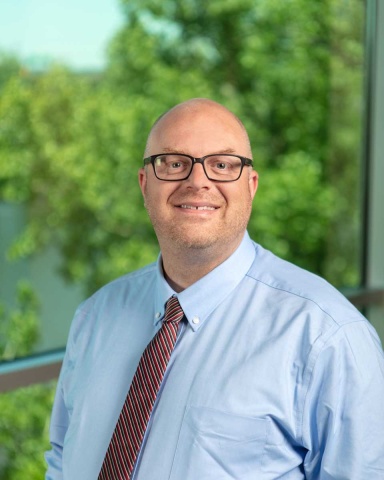Our most recent Acton Lecture Series (ALS), “Time Machines from the Past: Old Books Are Still Cool,” focused on how books connect us to both the people and ideas of the past. The event marked the return of in-person ALS events, and the featured speaker was Kristopher Bex, president of The Remnant Trust. The mission of the Remnant Trust, a public educational foundation, is to share an actively growing collection of manuscripts—first edition and early works—dealing with the topics of individual liberty and human dignity. The Remnant Trust advances that mission in a unique way by bringing people into contact with the world’s great ideas in their concrete historical form: books.
Mr. Bex’s talk was grounded in his own passion for literature as a gateway to understanding across a wide variety of disciplines. It is through his abiding interest and wide reading that Bex came to discover the interdependence of dignity and freedom. Literature serves not only as a gateway to understanding but also as a platform for the imagination, as in science fiction, for conceiving of possible futures for human civilization.
The future, according to Bex, is forever ground in the past and particularly in the medium that has served as the most extraordinary channel of human knowledge for the past two thousand years: the book.
When he first encountered antiquarian texts as a young man at the University of Oxford, Bex found the experience of being able to hold, touch, and read books from an earlier era to be transformative. It made his own knowledge of history real and concrete.
Not content to merely talk about this experience, Bex demonstrated this effect by inviting our audience to take and read books from a specially curated collection of The Remnant Trust’s books and manuscripts, which he brought to the Acton Institute. This special collection included first editions of works by Lord Acton, President John Adams, and the French economist Frédéric Bastiat. Medieval and early modern manuscripts of portions of the Bible, St. Thomas’ Summa Theologica and Boethius’ The Consolation of Philosophy were also included in this remarkable collection.
This truly was a singular event in which great ideas and the medium through which they were transmitted took center stage, illustrating how books themselves can serve as catalysts for conversation and contemplation. There are many collections of fine and rare books and manuscripts all over the world, but The Remnant Trust’s collection is unique in its tactile accessibility. This accessibility—the invitation to touch, handle, and read for ourselves—makes books more than just vehicles for ideas; they affect the way we grasp them and the way they shape our shared history. Those ideas enter our world in the same way we do, embodied, and the degree to which they shape our history and touch our hearts is the degree to which we take them into our hands.



